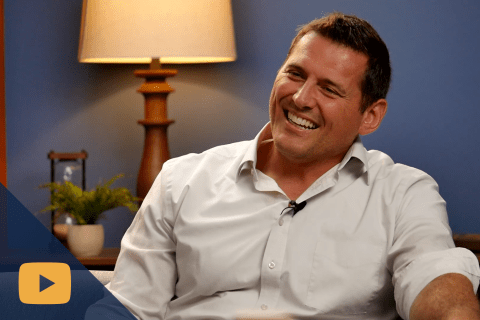
This article is the seventh in a series of nine on The Christian Athlete, authored by Dr. Luis Fernando Aragón-Vargas, professor of human movement science in the School of Physical Education and Sports at the University of Costa Rica.
Athletes may have a better understanding of the idea of teamwork than most, but they are not immune to the effects of the world, the flesh, and the devil. Our society is getting more and more individualistic (please pardon the apparent oxymoron) and we are all under great pressure to be selfish: we feel that if we don’t look out for our interests, nobody else will. Marketing is relentlessly tailored to your preferences and mine. Athletes in particular are in a constant struggle to balance teamwork and altruism on the one hand, with self-care and stewardship of their athletic careers on the other. In this brief article, I would like to tip the scale away from individualism.
In baseball and softball, there exists a terminology that points to the ideal of putting aside the individual in favor of the good of the whole. We are familiar with the “sacrifice” bunt or fly, where the player gives up his or her opportunity to get to first base, run the bases, and maybe even score a run, in order to advance another player and improve the team’s chances to score. Back in my days as a volleyball player I was frequently (too frequently, for my taste) asked to jump and fake hitting the ball to distract the defense so that another hitter could strike the ball and score. It was like performing multiple assists in basketball without getting any credit.
But I have seen few examples of teamwork as striking as those from professional road cycling. In multistage competitions such as the Vuelta a España, the Giro D’Italia, and the Tour de France, teamwork is essential. Take the 2019 Giro and the team Movistar: Mikel Landa, chosen to be the team leader, had less-than-ideal results in a few early stages. He was still racing for a podium, but his teammate Richard Carapaz turned out to have a chance for first place, and that transformed the team strategy. Landa was asked to become a pawn (peon) and he helped Carapaz win the maglia rosa… himself missing third place by 8 seconds after ninety (yes, 90) hours of grueling cycling!
These examples – and many better ones you can no doubt think of – are close to the heart of an athlete. I would like to extend the idea of teamwork to the need to have the right priorities: there will be some occasions when the well-being of a friend or classmate is more important than winning a particular competition. The Catholic athlete must keep an open heart, with an ear that is attentive to the whisper of God for these opportunities.
Athletes are accustomed to giving priority to their sport, often putting it before social life, rest, study, work, family, and fun, and it is true that unless they do that, it will be very difficult for them to succeed. But there is always a temptation present, the trap to focus too much on themselves. Meanwhile, God wants every Christian to keep his/her priorities straight. God must be number one:
To view the complete series with full citations as hosted by the University of Costa Rica, click here.

Next: You Are So Weak!
The qualities that make one a good athlete bring with them a unique set of vulnerabilities.

Previous: Ideals
Christian leaders, popes, and early Church Fathers have long recognized that Christians can imitate athletes in the way they train and compete.


